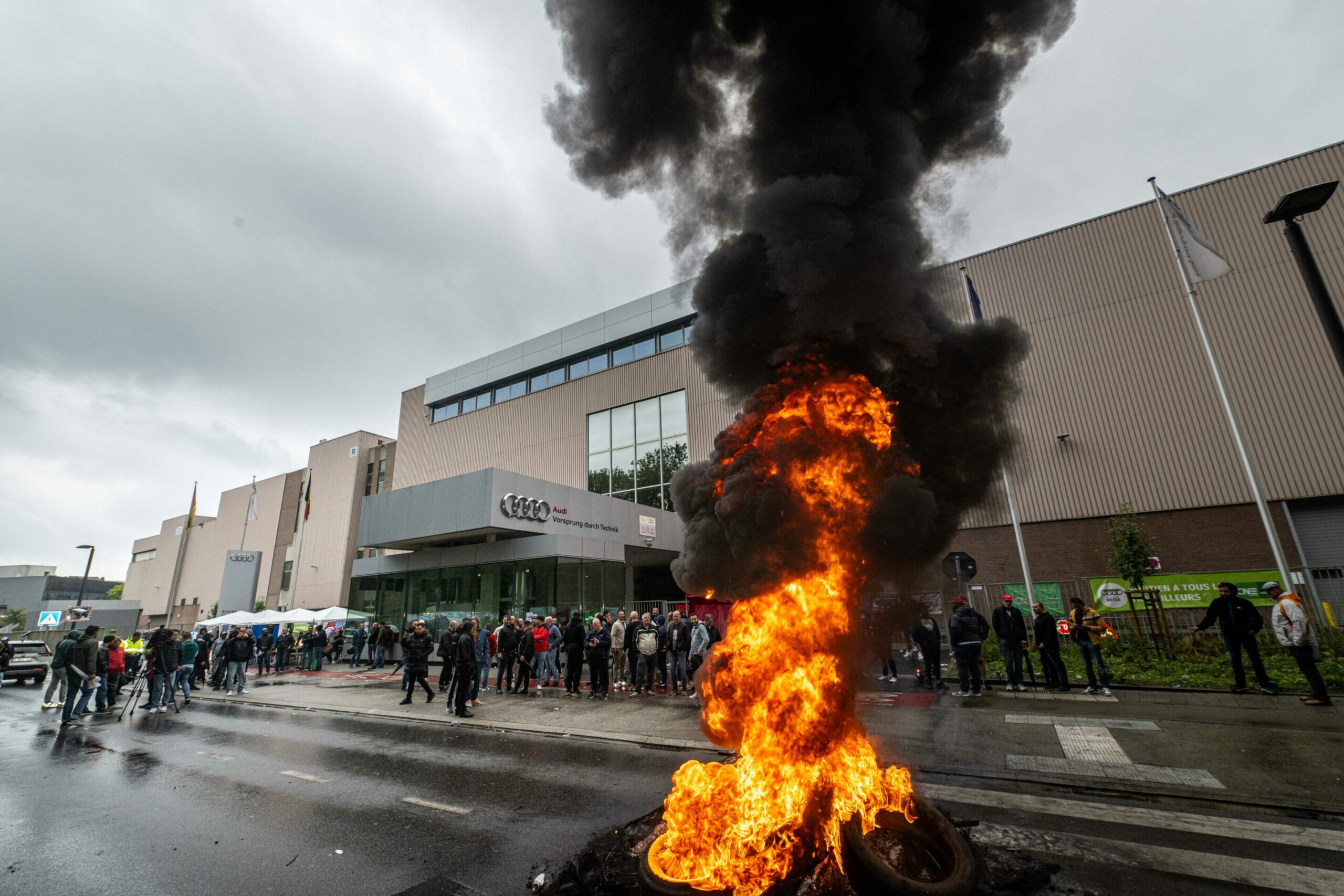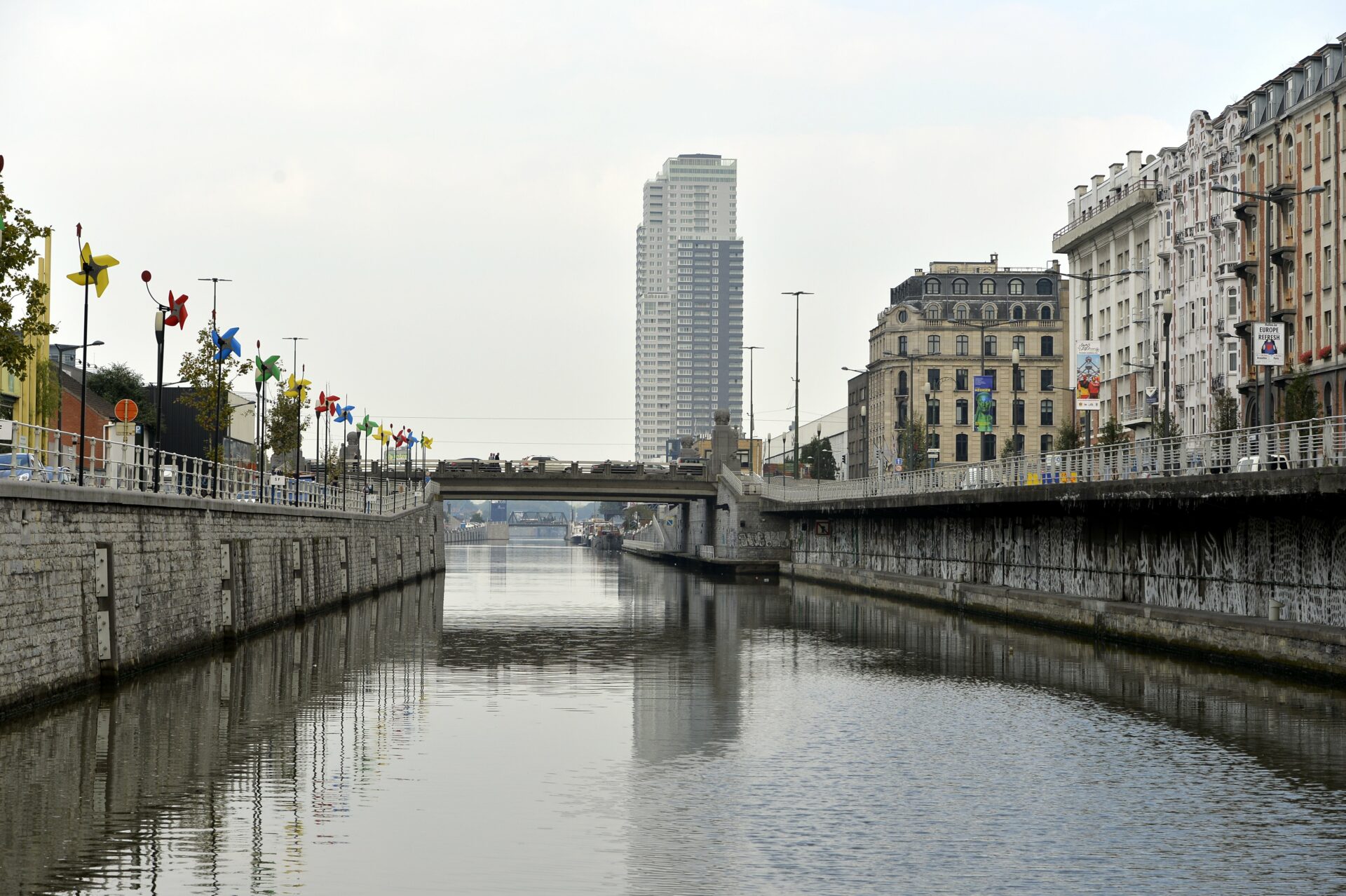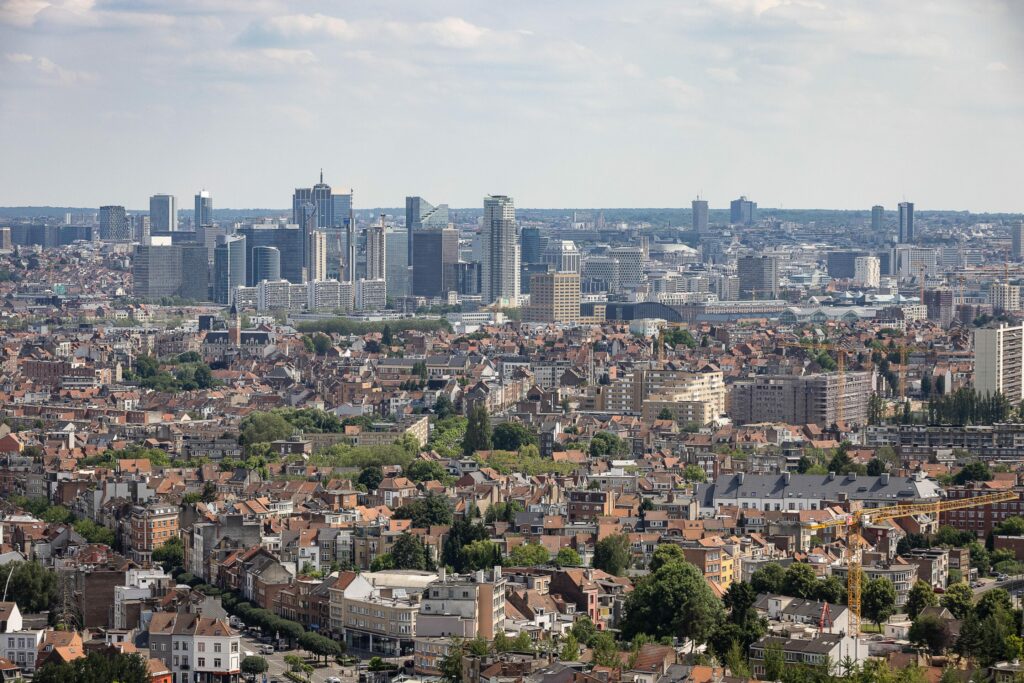One of Belgium's largest trade unions is calling on the next Federal Government to stop using former production sites for housing and revive industrial activity instead.
The General Labour Federation of Belgium (FGTB-ABVV) called on the Brussels Government to come up with a "genuine" industrial plan in a report published on Tuesday. The trade union says former production sites must not be used for housing and should serve to reinvigorate native industry and guarantee local jobs instead.
"Housing is another one of our priorities, but industrial sites should not be used for this purpose," FGTB Secretary-General for Brussels Florence Lepoivre told The Brussels Times. "Brussels has a huge amount of unoccupied housing that must be put back on the rental market, and a huge amount of substandard homes that need to be renovated."
"We don't want to pit the two against each other but we do want to preserve existing industrial sites for industrial use."
Audi closure an 'electric shock'

Workers gathered outside of the Audi Brussels plant Forest on Monday 9 September 2024. Credit: Belga
The report states that the closure of Audi's production site in Forest should serve as an "electric shock" to the Brussels-Capital Region, pushing it to adopt a "genuine industrial policy" that protects pre-existing activity and the jobs it provides.
However, FGTB is not advocating for a return of heavy industry to the capital city of Belgium. Lepoivre emphasises the need to focus on food-processing and recycling, two sectors that "contribute to local development, are rooted in the realities of Brussels and are useful and important for residents."
Change via reform
The union says change is possible via reforms to the Regional Land Use Plan (PRAS). Since 2001, the PRAS has designated specific areas in Brussels for either business, residential, environmental, industrial, mixed or other use.
FGBT argues that the PRAS has prioritised housing over industry since 2013 and is calling for an end to exceptions that allow for housing to be built in production zones. Lepoivre points to Biestebroeck in Anderlecht as prime example of this policy in action.
"Biestebroeck is the only site where barges can turn around on the canal, and the commune of Anderlecht has drawn up a plan which provides for the possibility of housing on this site," she explains. "This reduces the possibilities for industry and, in this case, for using the canal in Brussels."

The Senne River in Anderlecht. Credit: Belga / Eric Lalmand
Perspective.Brussels, the agency responsible for the regional land use plan, acknowledges imbalances over the years. However, its Share the City initiative aims to redress the problem by supporting local economic activities, as well as preserving and increasing the areas needed for production, logistics and agricultural activities, the agency added.
What about the housing crisis?
The housing crisis in Brussels is worsening year after year. Average house prices have risen from €465,000 to €555,000 in five years, and monthly rental averages rose by almost €100 between 2022 and 2023.
However, General Director of the Tenant's Union José Garcia says FGTB's proposal may not make a difference to either industrial or housing issues.
"FGTB’s fears are not rooted in reality, as this type of situation is very rare," he told The Brussels Times. In addition, "it costs a lot of money to depollute industrial sites before building housing there, and this leads to more housing for rich and not poor people. So this is not of much concern to us."
But Lepoivre points to the Biestebroeck case as proof that the PRAS is having a negative effect on the city's industrial capabilities.
She added that the idea of using the Audi site for housing was floated but is unlikely to be implemented.

